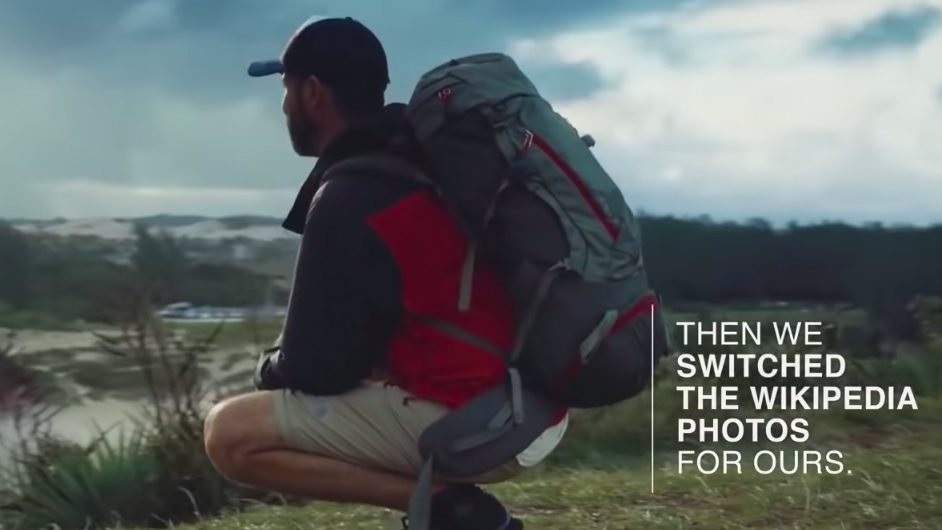SUMMARY
This is AI generated summarization, which may have errors. For context, always refer to the full article.

MANILA, Philippines – Popular American outdoor lifestyle brand The North Face found itself in a bit of controversy earlier this week as it replaced photos on certain Wikipedia entries with photos showing off their products, and later on video, gloated about having created free advertising with the scheme.
In a report by AdAge, the brand and the agency behind the campaign, Leo Burnett Tailor Made, replaced the photos on pages such as Brazil’s Guarita State Park and Farol do Mampimptuba, Cuillin in Scotland, and Peru’s Huayna Picchu with photos of athletes trekking in these locations while wearing North Face gear. The result was that these photos came out on top of results when people searched for the locations on Google image search, hence, free publicity and hence the campaign name “Top of Images.”
The brand and the agency appeared clueless about the ethics of such a move, going so far as to publish a video bragging about what they considered to be an accomplishment. The video, shown below, starts with the line, “How can a brand be the first on Google without paying anything for it?” and brags that they “did what no one has done before…we switched the Wikipedia photos for ours” and that they “[paid] absolutely nothing just by collaborating with Wikipedia.”
The Wikimedia Foundation, the non-profit behind Wikipedia, has since refuted that there was collaboration of any sort, saying in a blog that “Wikipedia and the Wikimedia Foundation did not collaborate on this stunt, as The North Face falsely claims.”
“In fact, what they did was akin to defacing public property, which is a surprising direction from The North Face. Their stated mission, ‘unchanged since 1966,’ is to “support the preservation of the outdoors’– a public good held in trust for all of us,” it added.
For the shortsighted campaign, The North Face apologized on Twitter and said that it hasended the promotion. In an interview with The New York Times, the company pinned the blame on a lack of communication between the company and the local distributor in Brazil, which had approved the campaign.
We believe deeply in @Wikipedia’s mission and apologize for engaging in activity inconsistent with those principles. Effective immediately, we have ended the campaign and moving forward, we’ll commit to ensuring that our teams and vendors are better trained on the site policies.
The foundation denounced the brand firmly: “When The North Face exploits the trust you have in Wikipedia to sell you more clothes, you should be angry. Adding content that is solely for commercial promotion goes directly against the policies, purpose and mission of Wikipedia to provide neutral, fact-based knowledge to the world.” – Rappler.com
Add a comment
How does this make you feel?
There are no comments yet. Add your comment to start the conversation.